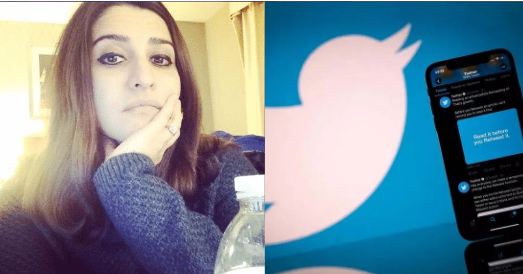Twitter’s Public Policy Director, Mahima Kaul has resigned from her post from January this year but will continue working on the position till March-end to facilitate a smooth transition. The same was attested by the fact that Twitter India has a LinkedIn ad showing the American company is seeking candidates for the key government relations position for India and South Asia. While those in the know of the development have told various media outlets that Mahima Kaul resigned due to “personal reasons”, not many are convinced and believe that Kaul’s resignation has a lot to do with Twitter’s recent spat with the Modi government.
“At the start of this year, Mahima Kaul decided to step down from her role as Twitter Public Policy Director for India and South Asia to take a well-deserved break. It’s a loss for all of us at Twitter, but after more than five years in the role we respect her desire to focus on the most important people and relationships in her personal life. Mahima will continue in her role till the end of March and will support the transition,” Monique Meche, Vice President, Twitter Public Policy, said in a statement.
It is not entirely impossible that Twitter let go of Mahima Kaul, and shrouded it as a ‘resignation’ of sorts. While this is speculation at best, it is not entirely a proposition holding no merit. Twitter India, at the behest of American executives, has been openly and brazenly defying central government directives, particularly concerning taming of accounts and handles tweeting vitriol under the premise of farmers’ protests.
TFI had earlier reported that Twitter had infuriated the Modi government, which lambasted the social media giant for taking up the role of an “appellate authority” even above the Central government of India.
Due to its misadventures, Twitter was slapped with a final notice, asking for the microblogging site to comply with the Indian IT Ministry’s earlier directive, or face penal action. TFI had also reported that non-compliance on the part of Twitter to the IT Ministry order could have dire consequences for it, and now it seems the very first signs of the microblogging site cracking up are emerging.
Read more: Twitter restores 250 Twitter accounts posting incendiary content after taking them down
Mahima Kaul was hardly a friend of the democratically elected government of India. When it comes to her opinions on BJP and PM Modi particularly, abusive vitriol was free-flowing on her timeline before her joining Twitter as the Public Policy Director in 2015. As a person with her biases right in place, the Modi government has found it annoyingly difficult to work with Twitter. With the microblogging site defying the IT Ministry order to block over 250 accounts recently, however, it seems the Public Policy Director’s professional epitaph was written, and Twitter India as a whole could be next in line.
https://twitter.com/Narayankumar100/status/1067108732947984384?s=20
The resignation of Mahima Kaul was not ‘natural’. This is evident from the fact that the Modi government, after news spread of the Public Policy Director ‘quitting’ her post, sent another notice to Twitter, calling for the suspension of another 1,178 accounts, suspected to be linked to Khalistan sympathisers or backed by Pakistan over the misuse of the micro-blogging platform regarding the farmers’ protests. It is yet to be seen whether Twitter complies by the fresh directives, failure of which will result in devastating consequences for the American social media platform in India.


























Twitter is acting like an extra constitutional authority. They can do nothing in china. Time Indian govt act tough with them .
I think India should do what Australia did with Google. Despite being the biggest tech company in history it had to comply with Australian demands. Remember, what Ambani said, ‘Data is the new oil’. India in few years will become the largest populated country and most probably the fastest growing economy. Can anybody imagine the value of Indian user data? Its the right time India should ask them point blank to choose between business or ideological agenda, they can’t have both.